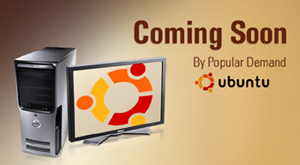Things I can do in Linux
 |
1. Update every single piece of software on my system with a single action. This is one of the main reasons I run Linux. For every Linux distribution I’ve used (Gentoo, Red Hat, Suse, Ubuntu,Fedora, Mandriva), updating is simple. When you update, you have every application, every library, every script – every single piece of software upgraded automatically for you. And on most of them, they will check for updates automatically and notify you. This is great for security, fixing bugs quickly, and getting the latest in features.
2. Update nearly everything on my computer without a reboot. On Linux, there is only one thing that requires a reboot after updates. The kernel. And even then you can continue to run on the previous kernel. You just need to reboot to get the benefit of using the new kernel (say, if it has a bug fix or a new feature).
3. Keep my system secure without software that consumes my system resources, requires my time, and frequently nags me. You don’t need
a. Antivirus protection. AV software consumes resources and requires routine scans.
b. A software firewall like ZoneAlarm or the one built into Vista that constantly asks you if you want to allow software to contact the Internet. More time on your part.
c. Adblock Adaware and/or Spybot Search & Destroy on a routine basis, consuming your time, and requiring your manual intervention. People often forget or don’t “get around to it”.
d. Never trusting software. You have to go through life assuming every bit of software and every website on the Internet is going to screw you over. What a sorry state of affairs that is.
All of this requires your attention, slows your computer, and ruins the open experience of the Internet. None of this is necessary in Linux. You get your software through your distribution. As long as you can trust your distribution, you can trust the software available. Having a firewall is a good thing even in Linux, but most of us have a firewall built into our Cable and DSL modems, or our wi-fi router.
4. Run an entire operating system for free without pirating software, and without breaking the law.. While unlikely, the potential is there for software companies to come after you just like the RIAA has come after countless people. With Linux, this isn’t necessary. You can run the software you need without paying for it, and without breaking the law. I know I sleep better at night.
5. Take my settings with me where ever I go. In Linux, all your personal settings are stored in your Home folder, most in folders that begin with a period (like .gaim). So, I can copy all these settings from one computer to another. I can put these settings on a USB drive. When I switched from Gentoo to Ubuntu, I kept all my settings.
6. Run Internet Explorer 5.0, 5.5, 6.0, and 7.0 on the same desktop. I have all installed thanks to the wonderful IEs4Linux project. I can even run them side-by-side if I want. For a web developer, that’s huge. Testing browser compatibility to that level on Windows requires multiple machines or something like VMWare. Further, when I run IE under Linux, I don’t have to worry about any malware or virus getting onto my system.
7. Understand everything that is going on in my computer. Linux is not a black box where you can see the outside, but you have no idea what is going on inside. Under Linux, you can look at the system logs, where you can see most issues. You can search for the log messages on Google, and can usually track the cause and often find a fix. If not, I can even go look at the source code to find the offending problem. Granted, most people aren’t capable or don’t have the time to look at the source code. But the fact that tens-of-thousands of geeks do is often very, very helpful. And if you do spend the time filling out a bug report, you are helping other people just like yourself, not contributing your time to a rich software company.
8. Customize every aspect of my desktop. I can choose the window manager, the desktop environment, the theme, the GTK engine, the icon theme, the special effects (see Beryl or Compiz), the file system browser, and so on. Nearly every aspect of the system has competitive options. If you look around the internet at screenshots of various Linux desktops, you rarely see two that look the same.
9. Benefit from competition between projects for each system on my computer. As I mention in point 8, there are options for every aspect of the Linux desktop. Not only is it fun to try the various options, but it leads to better software as multiple projects compete against each other to be the best. Can you imagine competing printing backends, competing desktop environments, or competing USB mounting systems.
10. Learn about, support, and appreciate the value of free software. I believe free software is important to us all. Even if you use non-free software, the free software movement ensures checks and balances on non-free software by offering an alternative. By running a free operating system and becoming involved in the community, I’ve contributed to free software, even if only in a small way.



